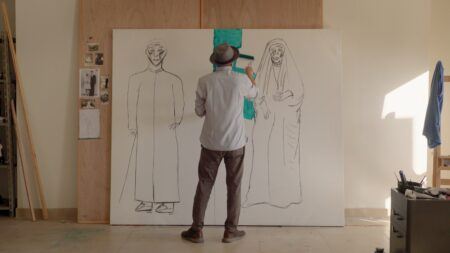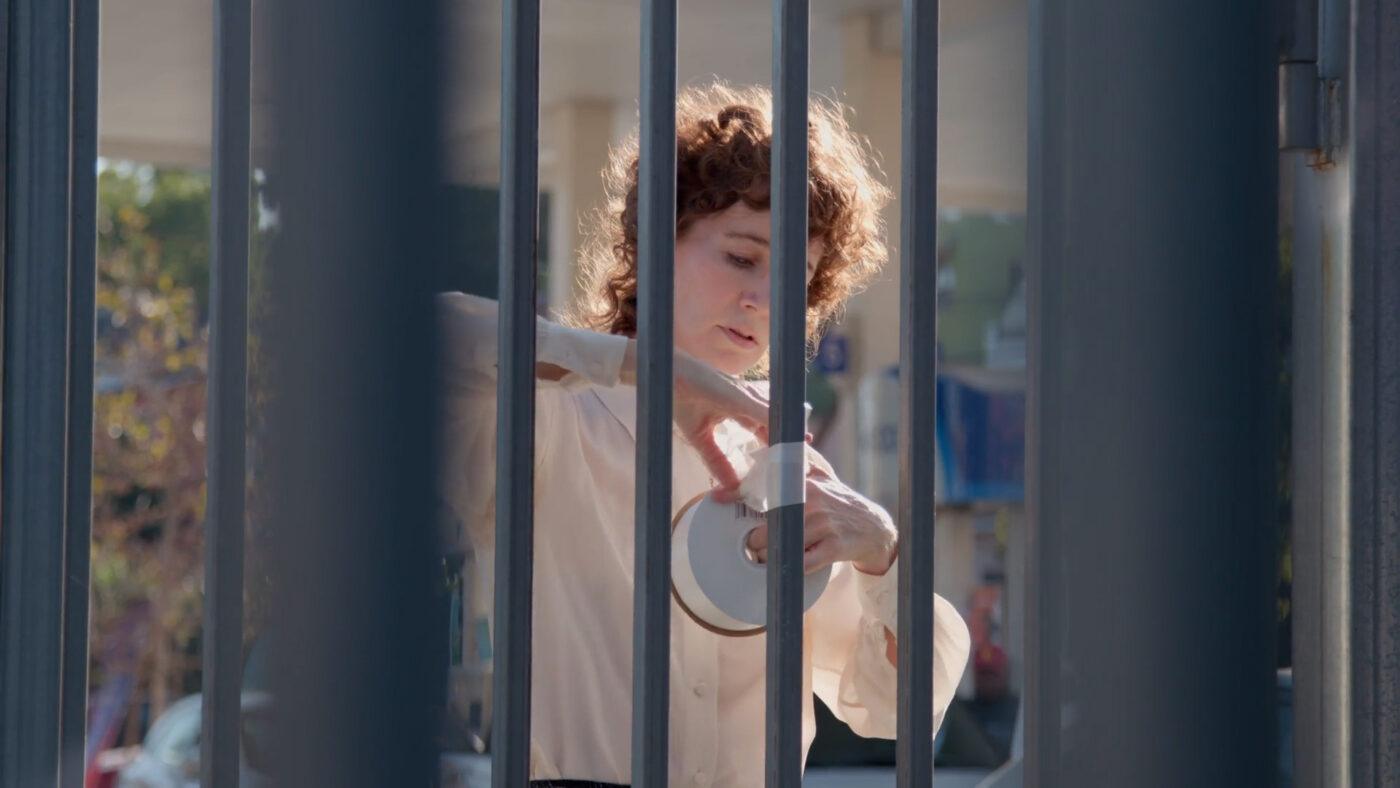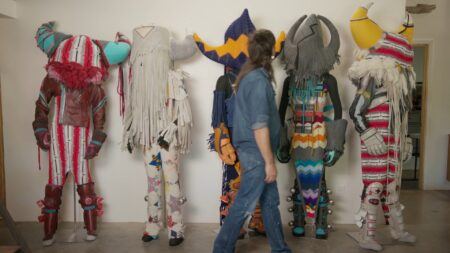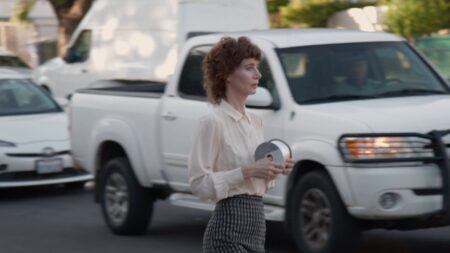Miranda July
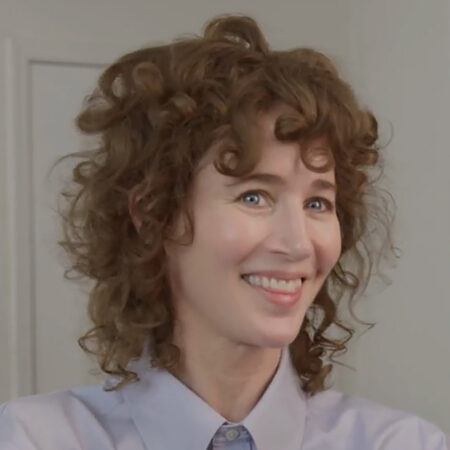
Miranda July was born in 1974 in Barre, Vermont, and lives and works in Los Angeles, California. July studied at the University of California, Santa Cruz, before leaving the university to pursue filmmaking. The artist works across media in her practice, from staged performances and feature films to impromptu dance and short videos posted on social media, from novels and short-story collections to sculptural installations at the Venice Biennale. In each of these varied media, July examines different models and modes of connecting with people, from close friends and family to total strangers, and shows audiences how these connections might transform our lives and the world around us.
In July’s practice, the search for connection is a fundamental aspect of the work. One of her earliest participatory artworks was Joanie 4 Jackie (1995–2005), which began as a pamphlet requesting that women filmmakers send her their films to be shared with other women filmmakers. Over ten years, Joanie 4 Jackie created a network of women filmmakers and an archive of films made by over 200 women, a landscape from which July and others could develop a perspective. Her collaboration with artist Harrell Fletcher, Learning to Love You More (2002–2009), asked people worldwide to submit responses to seventy simple but specific prompts that the collaborators set together. These ranged from abstract, such as “feel the news,” to deceptively simple, like “braid someone’s hair.” In the over 8,000 submissions, connections between people’s daily lives and their deepest feelings were made visible and significant through this closer attention.
Her three feature-length films, Me and You and Everyone We Know (2005), The Future (2011), and Kajillionaire (2020), each ruminate on unexpected relationships and small moments of magic in daily life. In her short films, July calls on friends, fans, and strangers alike to bring her work to life, filming with retailers at a gem convention or crowdsourcing scenes from her Instagram followers to create Jopie (2020). Outside of film and performance, the artist creates installations that engage audiences in the production of the work, as in Eleven Heavy Things (2009), where eleven photosets were installed at the 53rd Venice Biennale. The work was completed once the thousands of tourists at the international exhibition went home and began circulating images of themselves posed with the sets. Always working to connect individuals and find connection herself, July’s practice is an exercise in learning more about how we exist with one another, how we can bring each other closer, and all the things that might stand in the way.
Videos 3
“That’s part of the risk thing. Literally anything is possible in the moment. It is kind of like being in a dream or something, but a shared dream.”
Miranda July
